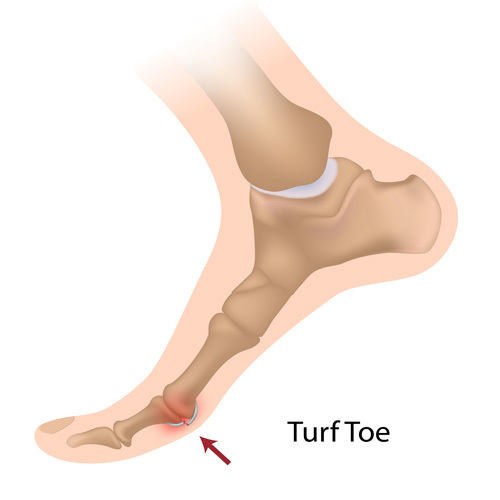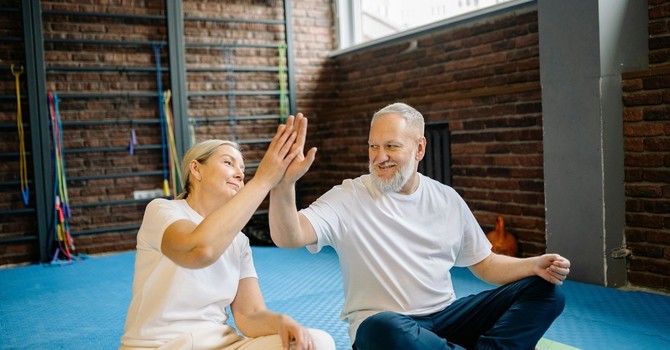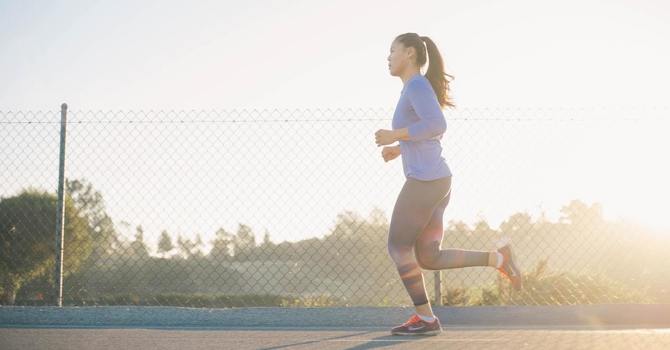
“Turf toe” means that the strong fibrous ligaments connecting your big toe to your foot have been stretched too far and have been “sprained.” This most commonly happens when your big toe is extended forcibly toward the top of your foot. This may happen abruptly from a fall or when something lands on the back of your calf while your toes are touching the ground. Turf toe commonly occurs from jamming your big toe into a hard surface. Occasionally, the injury happens over a long period of time from repetitive stress- like pushing off of the big toe each time you run or jump.
The term “turf toe” was coined because this injury became more common in athletes with the implementation of artificial turf fields. Turf toe injuries rank third after knee and ankle injuries among the most common cause for lost playing time in athletes.
A turf toe injury causes pain and swelling at the base of your big toe. You will notice your pain probably increases when your toe is straightened or bent backward toward the top of your foot. Sometimes you may notice bruising shortly after the injury. Gout, a type of arthritis that is more common in men, can sometimes act like turf toe. Be sure to tell your doctor if you or someone in your family has a history of gout.
Early treatment is focused on keeping your toe from moving too much. Depending upon the severity of the injury, turf toe usually requires a period of rest for proper healing. When directed, you may begin non-weight bearing activities, such as stationary cycling or swimming. You should take a close look at your shoes before returning to play. Wearing excessively flexible shoes on a turf field increases your chance of injury. Consider a stiff-soled shoe or hard carbon fiber insert during initial healing. When you are able to run and change directions without pain or loss of mobility, you will likely be allowed to return to play. Be sure to ice your toe for 10-15 minutes following any activity while your injury is healing.




